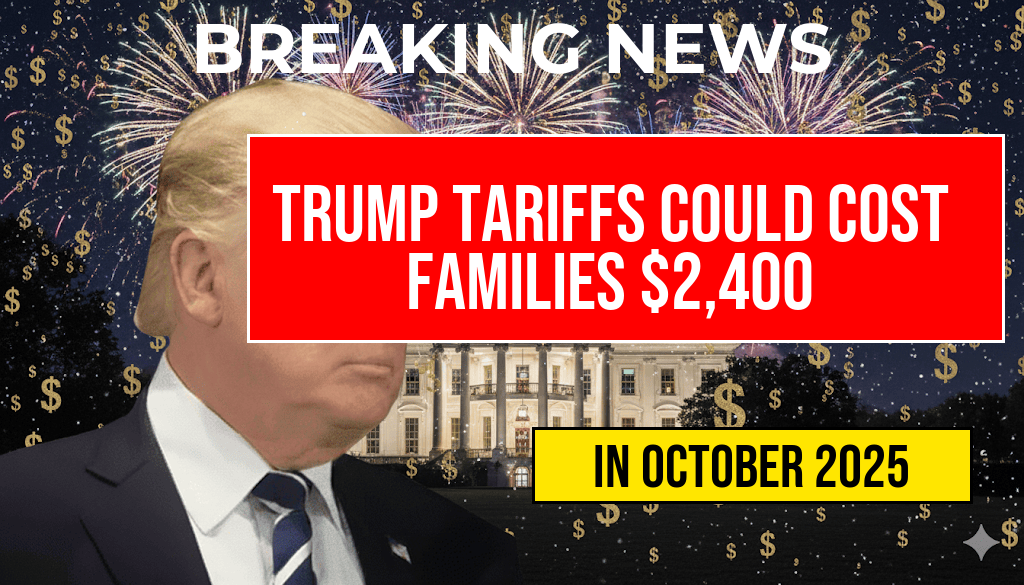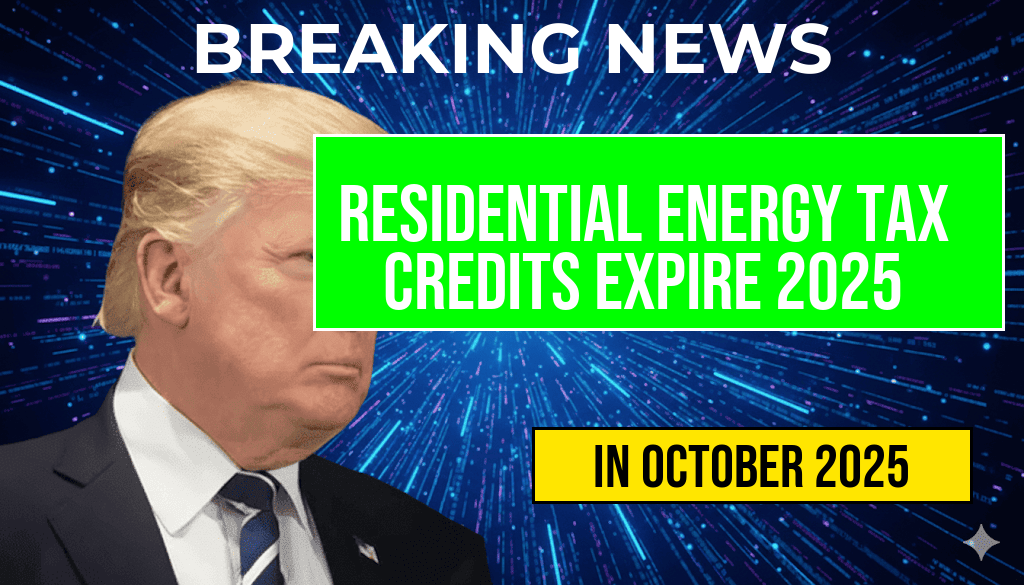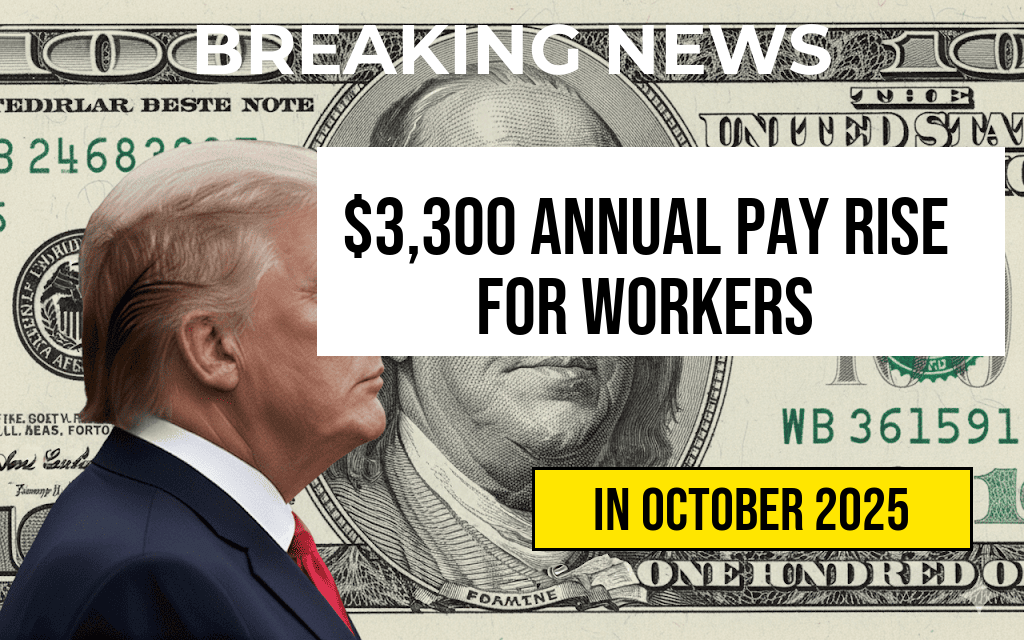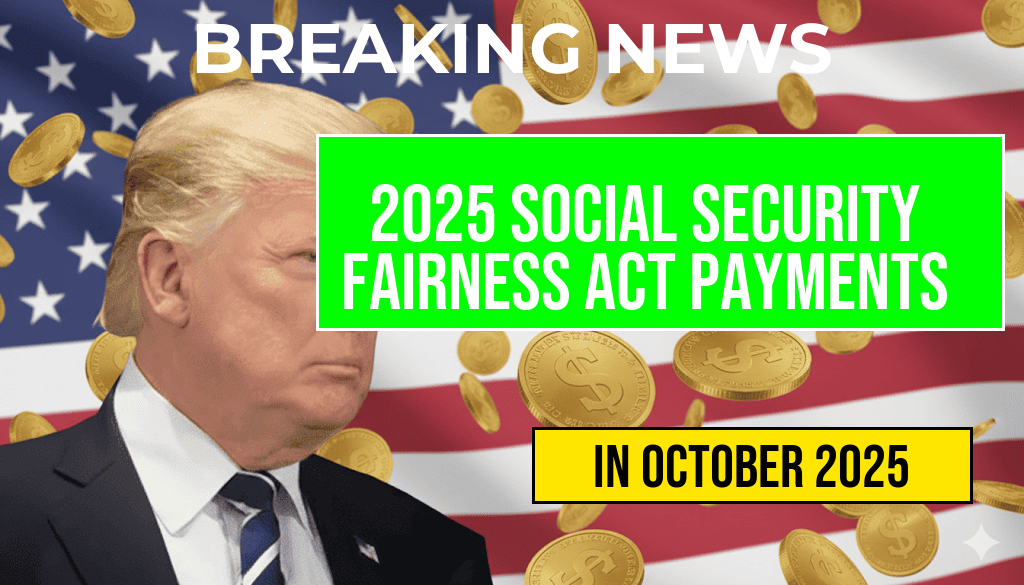As the push for renewable energy solutions gains momentum, a looming deadline is set to reshape the landscape of residential energy tax credits. Homeowners looking to invest in energy-efficient upgrades can currently benefit from a range of tax incentives, but these credits are scheduled to expire after 2025. This impending expiration raises concerns about the future of green energy initiatives, as many homeowners may feel pressured to act quickly to take advantage of the available financial benefits. With the ongoing discussions in Congress regarding energy policy and climate change, the potential for future incentives remains uncertain.
Current Landscape of Residential Energy Tax Credits
Residential energy tax credits have played a crucial role in encouraging homeowners to transition to energy-efficient solutions. These credits have made it financially feasible for many to invest in solar panels, energy-efficient HVAC systems, and other renewable technologies. According to the U.S. Department of Energy, homeowners can claim a tax credit for up to 26% of the cost of solar energy systems purchased and installed before the end of 2022, with a gradual decrease to 22% in 2023. However, the current incentives are set to phase out entirely after 2025.
Impact on Homeowners and the Green Energy Market
The expiration of these credits could have significant implications for the green energy market and homeowners alike. Many property owners are already grappling with the high upfront costs of renewable energy installations. Without the financial cushion provided by tax credits, potential buyers might hesitate to make the switch to greener options.
- Increased Costs: Homeowners may face higher out-of-pocket expenses for energy-efficient upgrades.
- Market Slowdown: A potential decline in demand for solar systems and other green technologies may occur.
- Environmental Concerns: The reduction in installations could hinder progress toward climate goals.
Voices from the Industry
Industry experts express concern that the expiration of these credits could stall advancements in renewable energy adoption. “The tax credits have driven significant growth in the solar market,” said Lisa Jackson, a leading figure in renewable energy advocacy. “Without these incentives, we risk losing the momentum we’ve built over the past decade.” Many companies in the energy sector are already strategizing to encourage customers to take action before the deadline.
State-Level Responses
In light of the impending expiration, some states are exploring their own incentives to fill the potential gap. For instance, California has already implemented various rebate programs aimed at promoting solar energy adoption among residents, while New York is enhancing its own initiatives to ensure continued growth in green energy investments.
Future Hopes for Legislation
As the 2025 deadline approaches, discussions are ongoing in Congress regarding the possibility of extending or expanding these tax credits. Environmental advocates are urging lawmakers to consider the long-term benefits of renewable energy investments, not only for homeowners but also for the environment. The recent legislative efforts highlight a growing recognition of the importance of sustaining these initiatives.
Conclusion: What Homeowners Can Do
As the expiration date looms, homeowners interested in energy-efficient upgrades are encouraged to explore their options. Consulting with energy advisors can help individuals make informed decisions about investments that align with their financial and environmental goals. While uncertainty surrounds the future of residential energy tax credits, the current framework still offers significant savings for those willing to act before the deadline.
| Year | Tax Credit Percentage |
|---|---|
| 2022 | 26% |
| 2023 | 22% |
| 2024 | 22% |
| 2025 | Expired |
Frequently Asked Questions
What are the Residential Energy Tax Credits?
The Residential Energy Tax Credits are financial incentives provided by the government to encourage homeowners to invest in renewable energy systems and improve energy efficiency in their homes. These credits help offset the costs of installations such as solar panels, wind turbines, and energy-efficient appliances.
When will the Residential Energy Tax Credits expire?
The Residential Energy Tax Credits are set to expire after 2025. Homeowners interested in taking advantage of these incentives should plan their installations before this deadline.
What types of green energy projects are eligible for the tax credits?
Eligible projects for the Residential Energy Tax Credits include the installation of solar energy systems, wind turbines, geothermal heat pumps, and certain energy-efficient improvements such as insulation and windows.
How can homeowners claim the Residential Energy Tax Credits?
Homeowners can claim the Residential Energy Tax Credits by filing the appropriate tax forms with the IRS when they file their income tax return. It’s important to keep all receipts and documentation for the installations to ensure eligibility.
What should homeowners do if they miss the Residential Energy Tax Credits deadline?
If homeowners miss the Residential Energy Tax Credits deadline, they will no longer be able to receive these financial incentives for their green energy projects. However, they can still explore other state or local incentives that may be available for energy-efficient upgrades.











